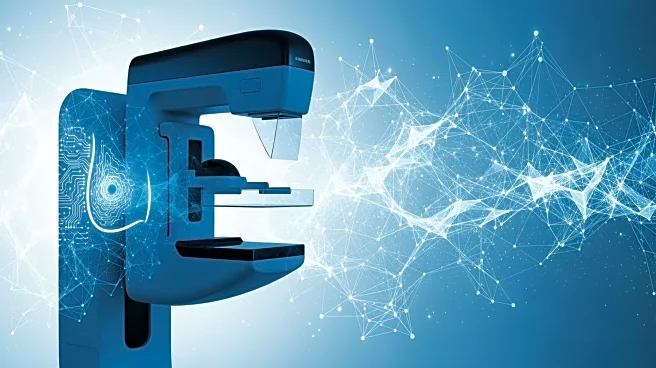Rapid Read • 8 min read
Two residents of Los Angeles County, Chuan Geng and Shiwei Yang, have been arrested and face federal charges for allegedly exporting artificial intelligence microchips worth tens of millions of dollars to China. According to the U.S. attorney's office for the Eastern District of California, the pair operated ALX Solutions Inc., a technology company based in El Monte, which specialized in high-powered processing units. The company allegedly exported these microchips without the necessary licenses, violating federal export regulations. The U.S. Department of Commerce had previously mandated licenses for exporting such sensitive technologies. The investigation revealed that ALX Solutions conducted at least 20 unlicensed shipments to China, using transshipment points in Singapore and Malaysia to conceal the illegal exports. The Justice Department has charged Geng and Yang under the Export Control Reform Act, which could result in a maximum sentence of 20 years in federal prison.
AD
This case highlights the ongoing challenges in regulating the export of sensitive technologies, particularly those related to artificial intelligence. The illegal export of AI microchips poses significant risks to national security, as these technologies can be used in various applications, including self-driving cars and medical systems. The incident underscores the importance of stringent export controls and the need for vigilance in enforcing these regulations. The U.S. government aims to prevent the unauthorized transfer of emerging technologies that could enhance the capabilities of foreign entities, potentially impacting the competitive edge of U.S. industries. The case also reflects broader geopolitical tensions, as technology exports to China are closely monitored due to concerns over intellectual property theft and military applications.
The investigation by the FBI and the Department of Commerce Bureau of Industry and Security is ongoing. Geng has been released on a $250,000 bond, while Yang's detention hearing is scheduled for August 12. Both individuals are set to be arraigned on September 11. The case may lead to increased scrutiny and tighter regulations on technology exports, particularly those involving AI and other emerging technologies. Companies involved in international trade may face more rigorous compliance checks to ensure adherence to export laws. The outcome of this case could influence future policy decisions regarding technology exports and international trade relations.
AD
More Stories You Might Enjoy










